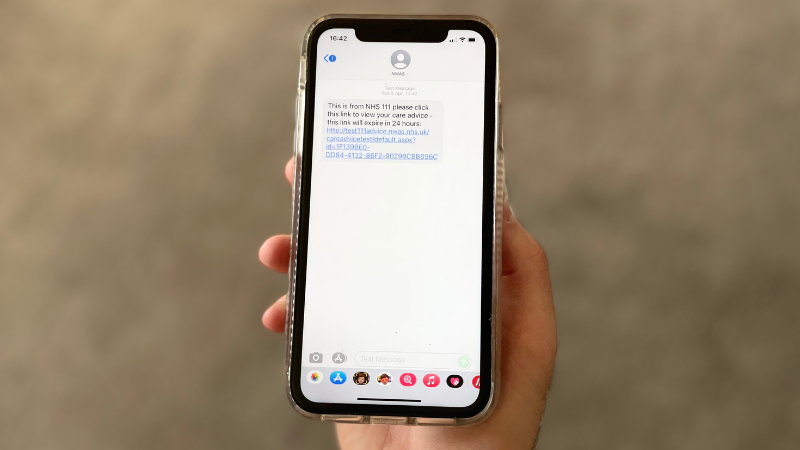
Helpful care advice, which is usually read to the caller following an assessment by NHS 111, will now be sent in a text message, making it easier for people to digest and refer back to. This will also reduce the length of the call, allowing NHS 111 to answer even more requests for urgent care advice from the public.
When people call 111, if they are considered suitable for the text service, the health advisor will check they have access to receive SMS messages and give them the option to receive the appropriate care advice via SMS rather than listen to it being read aloud over the phone.
When healthcare advice is given verbally, it raises the possibility that the caller may only remember or act on part of the advice given. This can mean people need to call back or seek further support from other NHS services. Having the information available to read again on their mobile phone will help to improve patient understanding of the advice, helping to reduce avoidable future contact with NHS services.
111 Senior Service Delivery Manager Sally Rose said: “We handle over 30,000 calls per week in 111 and are always looking to make improvements that benefit overall patient care.
“The pilot has been running for just over a month and we have already had feedback from our patients who have said they find it helpful.
“It is enabling patients to properly receive all the advice, giving them time to digest the information at their own pace, whilst allowing them to refer back to the care advice following the call.
“It is no secret how busy NHS 111 has been and continues to be, and an added benefit of this this pilot is the time it saves on each call, which allows our health advisors to assist the next patient more quickly.”
The NHS 111 service is available 24 hours a day by visiting 111.nhs.uk or dialling 111. This pilot is currently optional for people calling NHS 111.